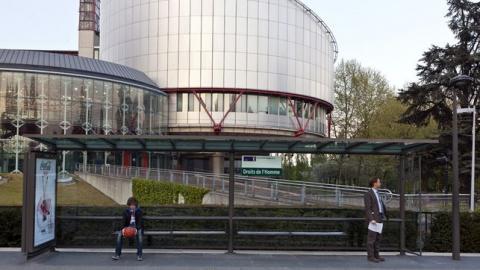Freedom of Opinion Moves Forward

Karl-Otto Sattler, Strasbourg, December 21, 2013
In a democracy, the state may not declare an objective and absolute truth of historiography and then enforce it by means of criminal law: With this reasoning the Human Rights Law Court on Tuesday classified the conviction of a Turkish politician - who had denied the thesis of the genocide of Armenians in the Ottoman Empire during the First World War - as a violation of the Freedom of Opinion [Law] enshrined in the European Council's Human Rights Charter. The landmark ruling of the Strasbourg judges goes far beyond this single case - because the Armenian question is also disputed in other European countries - for example, France.
Disputed or Not?
At several conferences in Switzerland during 2005 the Turkish politician Dogu Perincek had criticized the characterizing as genocide of the massacres and deportations of Armenians occuring in the Ottoman Empire in 1915 - calling it international lies - though he did not dispute their occurence. Because of these statements Perincek was, in the final instance - 2007, required to pay a conditional fine for racial discrimination. The [Swiss] Federal Court found [at the time] concerning the assesment of events during the First World War, that consensus prevailed in the sciences and in public opinion. A court had previously declared that the genocide of the Armenians was a recognized historical fact. And this truth had found its way into the Swiss Criminal Code.
As to this situation concerning justice and politics in Switzerland the European Council judges would allow not the slightest latitude. Historiography is in its essence controversial and debatable, and hardly lends itself to objective and absolute truths or definitive conclusions, the Strasbourg decision says. Perincek's statements are part of the disputed historical, legal and political debate. It is free and open discussion - including that of sensitive questions as well - which differentiates a democratic, tolerant and pluralistic society from a totalitarian and dictatorial regime, the decision firmly states.
No Evaluation of the Events
The law court has noted in the court register moreover, concerning Switzerland and the other Council of Europe countries, that the state-declared categorization as genocide of the 1915 actions against the Armenians must not be coupled with the legal consequences of citizens who call into question these official points of view. Under Freedom of Opinion comes also the protection of minoritiy opinions, which are indeed well-suited to the animating of debates which are in the public interest.
The European Council judges recall one decision of the highest juridical level in France from the year 2012, whereby it is unconstitutional, as well contrary to Freedom of Opinion and Scientific Freedom [law], to suppress views that cast doubt on an officially recognized genocide. One must be mindful, urges the Human Rights Law Court, that such [officialy held] positions do not result in censorship and thus disuade citizens from voicing their critical opinions. Consequently the Strasbourger judges have in turn declined to put forth any legal assessment of the events in the Ottoman Empire one hundred years ago.
http://www.nzz.ch/aktuell/schweiz/die-meinungsfreiheit-geht-vor-1.18206579
See also the official Jew-media outlets' presentation of this news:
http://www.reuters.com/article/2013/12/17/us-switzerland-turkey-genocide-idUSBRE9BG11J20131217
Category
European Union, Holocaust Revisionism, Law & Government- 1713 reads









